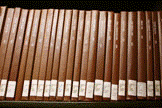Anthropology, Department of

Department of Anthropology: Theses and Student Research
First Advisor
Raymond Hames
Second Advisor
Wayne Babchuk
Third Advisor
Chuck Francis
Date of this Version
Summer 6-12-2017
Document Type
Thesis
Citation
A thesis presented to the faculty of the Graduate College at the University of Nebraska in partial fulfillment of requirements for the degree of Master of Arts
Major: Anthropology
Under the supervision of Professor Raymond Hames
Lincoln, Nebraska, August 2017
Abstract
Procedures used for defining coffee quality include a variety of activities ranging from physical measurements, hedonic sensory evaluations, and valuation of recognized extrinsic attributes. The physical measurements of coffee quality evaluate intrinsic attributes through a set of formal coffee grading and analysis standards, in addition to human sensory activities which conduct formal cupping protocol standards and formal tasting competitions. Extrinsic qualities include attributes such as branding and aesthetics, in addition to sets of ethical qualities established to further differentiate value beyond intrinsic and hedonic qualities. The promotion and standardization of coffee quality expectations directly impact activities taken by coffee producers. Achieving established quality expectations require coffee producers to adapt certain land-use practices and post-harvest processes activities which significantly impact their livelihoods. This thesis will examine how coffee quality is interpreted, standardized, and implemented within the coffee supply chain and will further investigate environmental and economic trade-offs quality standards impose on land-use and post-harvest processing activities.
The thesis will approach defining coffee quality through a collection of three distinct categories; intrinsic, hedonic, and extrinsic quality. This examination aims to demonstrate how these categories of coffee quality impact decisions made in the daily activities of coffee farming communities. A descriptive account will be presented to demonstrate activities relating to land-use and post-harvest processing methods within three separate smallholder coffee farming communities in the Cajamarca Region of Peru. Observations were made to show a variety of economic and environmental tradeoffs for achieving quality standards driven by current market demands.
Advisor: Raymond Hames


Comments
Copyright (c) 2017, Jonathan E. Ferguson